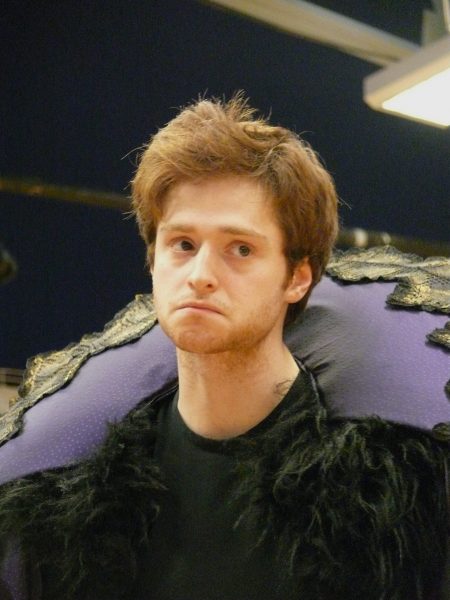Showing @ Royal Lyceum Theatre, Edinburgh, Fri 25 Nov – Sat 31 Dec
As the panto train prepares to roll into town (or is that the good old Coca Cola advert?), writer Stuart Paterson chats to us ahead of this year’s Lyceum selection Beauty and the Beast. Ten years since it was last staged and twenty-five since its creation, there seems to be something more substantial to this classic fairytale, as its conception remains mysterious, its comment on sexual and spiritual love profound and its moral framework inspiring.
Paterson explains how this, and indeed Panto itself, offers a certain artistic and creative freedom when writing: ‘Panto to me is a musical hall tradition, but it’s a wink to the audience. What we try to do is something just a little bit different; we’re not going to wink at you because we believe in the story and we want you to as well so it’s a different take on what you’re trying to sell. There is of course mischief and nonsense, but the nonsense is shaped within the story so it doesn’t actually distract from it, it hopefully supports it so you get that sense of balance.’
This freedom, generally hard to capture throughout the calendar year as shows rely heavily on political relevancies or officious high-end production values, can be traced back to Paterson’s first draft of the show. He explains that ‘when it was first done here, something happened that made me think actually this is a proper form of theatre writing, there’s something you can do here because you’ve got the license to be magical, to have nonsense, to have huge sets, to be slightly operatic in the way you deal with things.’ It suggests an escapism tendered only by the nature of Panto while mingling with the grandeur sought after by institutions like NTS.
I really did believe that theatre was unpleasantly elitist, and I still kinda do, but the only time it wasn’t elitist was at Christmas
The accessible qualities held within Panto also manage to capture the flipside of mischief and daftness: the political metaphors lurking in the subtext. Paterson admits that he feels ‘concussed by modern life. I had quite simple broad socialist views as a young man and I’ve tried to hang on to those but I’ve been so frustrated and angered by, for instance, what’s happened to the labour party. So going back to a story as potent as this is inevitably political because it has a powerful human heart – something we’re not supposed to have, we’re supposed to just be selfish and stare at our little boxes’.
As we know, there’s something inherently more expressive about Panto; it caters for the masses with silliness and fun, it serves up the moral and sexual innuendos while flirting with the political symbols surrounding the context of our fairytales. Paterson ties this in to theatre itself, arguing that ‘we’ve all been screwed politically over the last 20 years, but I really did believe that theatre was unpleasantly elitist, and I still kinda do, but the only time it wasn’t elitist was at Christmas time because you had drunken office parties and school kids and grannies all brought together. And there’s a wonderful ritual to surviving Christmas.’
This ritual, however corny or clichéd, is true of our very natures, as we are creatures of habit struggling to achieve the artistic freedoms we can often criticise and label. So with this production comes the token Christmas show for the kiddies, but its selection reflects a communal (is socialist a bit too far?) attitude towards theatre-making and practice, fusing big-scale performances with quaint traditional storytelling: a synthesis which will be difficult to achieve at any other time of the year.
